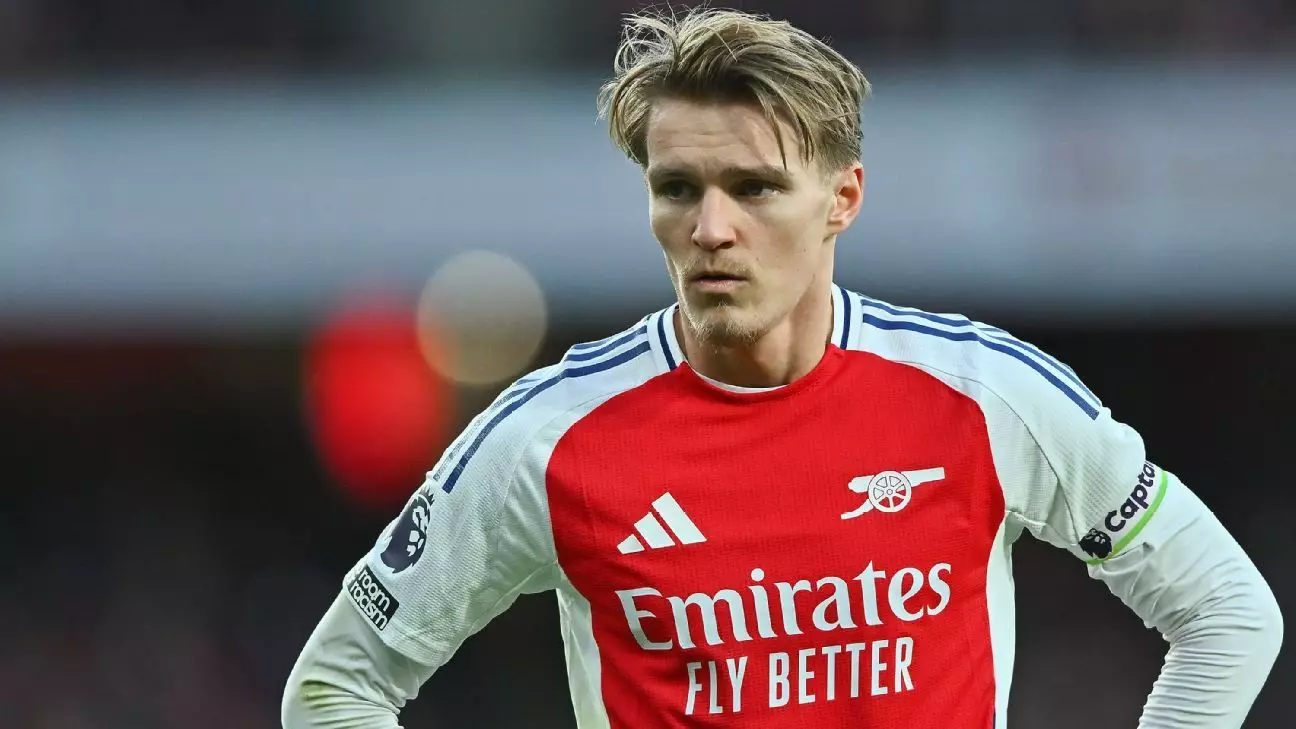In a recent match that saw Arsenal held to a frustrating 0-0 draw against Everton at the Emirates Stadium, manager Mikel Arteta faced significant scrutiny over his decision-making. The most contentious moment arose during the substitution of captain Martin Ødegaard, who was replaced by the young Ethan Nwaneri in the 62nd minute. This move raised eyebrows, particularly given Ødegaard’s crucial role in orchestrating the team’s attacks. Arteta’s justification for this tactical switch reflects his commitment to strategic gameplay, but it leaves many questioning whether removing the influential captain was indeed the right call.
The match was characterized by a heavy defensive setup from Everton, whose goalkeeper Jordan Pickford demonstrated remarkable skill in thwarting Arsenal’s attempts on goal. The decision to bring in a teenager to replace an experienced playmaker could be construed as a gamble—one that relies heavily on the prospect of young talent shining in high-pressure situations. Arteta defended his choice by suggesting that introducing Nwaneri was meant to alter the rhythm of the game on the left side. However, tactical adjustments must always be weighed against the impact of losing a crucial team leader. The balance between tactical necessity and emotional intelligence in leadership roles is critical; Arteta seemed to lean heavily on tactical necessity in this instance.
Alongside Ødegaard’s substitution, Declan Rice was also withdrawn, reportedly due to fitness concerns, further complicating Arsenal’s attacking dynamics. Arteta acknowledged Rice’s condition as a key factor in his decision-making during the match: “I had to take him off because he was feeling something.” This highlights a growing issue in modern football whereby managers must juggle the physical fitness of key players with the immediate demands of the game.
While Arteta’s strategy was designed to rejuvenate the team’s offensive drive, it raises an important question: could the Arsenal manager have maintained a stronger offensive posture by retaining experienced players? The potential risk of making double substitutions during critical match phases could be detrimental, especially when maintaining momentum is vital. This underscores the real-life challenge managers face in balancing risk with the overarching goal of securing a win.
Overall, the stalemate was not just a reflection of Arsenal’s strategy but also credit to Everton’s disciplined defensive display. Arteta praised the visitors for their shot-blocking and organizational structures, remarking on their effective defense. While it is essential to analyze one’s own team’s performance critically, acknowledging the opponent’s strengths is equally vital.
The draw requires a deep dive into Arsenal’s attacking approach and the quality of execution in critical moments. The Gunners are at a juncture where they must evolve, both tactically and emotionally, to convert potential into actual results. Moving forward, Arteta needs to evaluate whether occasional tactical substitutions can consistently yield the desired outcomes, especially against resilient opposition like Everton.
Mikel Arteta’s tactical decisions during the Everton match offer valuable insights into the complexities of modern football management. As fans and analysts dissect his choices, it becomes increasingly evident that the path to success for Arsenal may depend not only on strategy but also on the ability to harness the emotional and psychological elements of team dynamics.


Leave a Reply